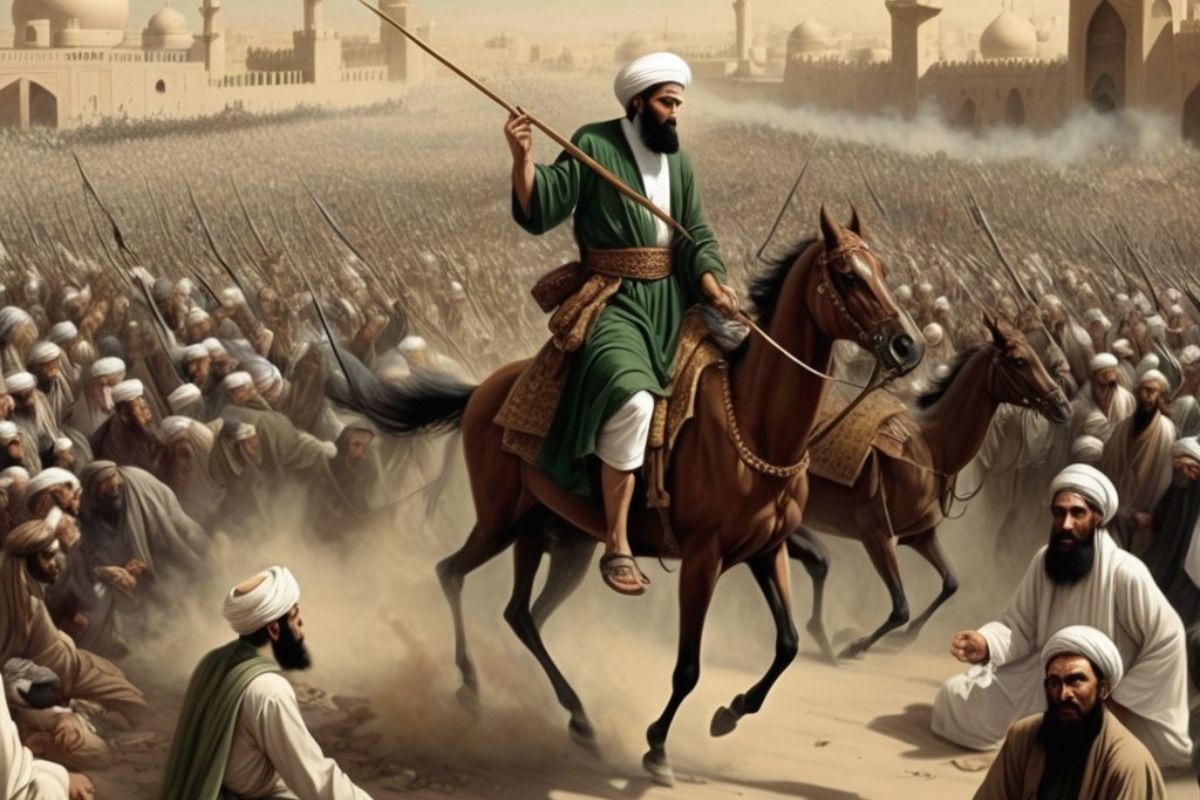
What was the Kharijite Rebellion? The Kharijite Rebellion was a significant uprising in early Islamic history. Emerging in the 7th century, the Kharijites were a radical faction that split from the main Muslim community due to political and theological disagreements. They believed that any pious Muslim could lead the community, rejecting the idea of hereditary leadership. Their rebellion began after the Battle of Siffin, where they opposed both Caliph Ali and Muawiya. Known for their strict interpretation of Islam, they carried out several revolts and assassinations, including the killing of Caliph Ali. Their actions and beliefs left a lasting impact on Islamic thought and politics.
Key Takeaways:
- The Kharijite Rebellion was a major conflict in early Islamic history, sparked by disagreements over leadership and religious beliefs. It influenced Islamic thought and left a lasting legacy on the community's unity and diversity.
- The Kharijites' strict interpretation of Islam and their rebellion against established leadership had a significant impact on Islamic theology and jurisprudence. Their legacy continues to shape the complexities of Islamic history.
The Origins of the Kharijite Rebellion
The Kharijite Rebellion was a significant event in early Islamic history. It stemmed from political and theological disagreements that led to a series of conflicts. Here are some intriguing facts about this rebellion:
- The Kharijites emerged during the First Fitna, the first major civil war within the Islamic community.
- They initially supported Ali ibn Abi Talib, the fourth caliph, but later turned against him.
- The term "Kharijite" comes from the Arabic word "khawarij," meaning "those who went out" or "rebels."
Key Beliefs and Practices
The Kharijites held distinct beliefs that set them apart from other Islamic groups. Their strict interpretation of Islam influenced their actions and decisions.
- They believed that any Muslim could become a caliph if they were pious and righteous.
- The Kharijites rejected the idea of hereditary succession in leadership.
- They were known for their extreme piety and strict adherence to Islamic principles.
- The Kharijites considered grave sinners to be non-believers, deserving of death.
Major Battles and Conflicts
The Kharijite Rebellion involved several significant battles and conflicts. These clashes had lasting impacts on the Islamic world.
- The Battle of Nahrawan in 658 CE was a crucial conflict between Ali's forces and the Kharijites.
- Ali's victory at Nahrawan weakened the Kharijite movement but did not eliminate it.
- The Kharijites continued to rebel against subsequent caliphs, including the Umayyad and Abbasid dynasties.
Assassination of Ali ibn Abi Talib
One of the most notable events associated with the Kharijite Rebellion was the assassination of Ali ibn Abi Talib.
- A Kharijite named Abd-al-Rahman ibn Muljam assassinated Ali in 661 CE.
- The assassination took place in the Great Mosque of Kufa during morning prayers.
- Ali's death marked the end of the Rashidun Caliphate and the beginning of the Umayyad Caliphate.
The Kharijites' Influence on Islamic Thought
Despite their eventual decline, the Kharijites left a lasting impact on Islamic theology and jurisprudence.
- Their emphasis on piety and righteousness influenced later Islamic movements.
- The Kharijites' strict interpretation of the Quran and Hadith contributed to the development of Islamic legal thought.
- Some modern extremist groups draw inspiration from Kharijite ideology.
Decline and Legacy
The Kharijite Rebellion eventually waned, but its legacy persisted in various forms throughout Islamic history.
- The Azariqa and Ibadiyya were two prominent Kharijite sects that emerged after the rebellion.
- The Ibadiyya sect still exists today, primarily in Oman and parts of North Africa.
- The Kharijite Rebellion highlighted the challenges of maintaining unity within the early Islamic community.
- The rebellion's legacy serves as a reminder of the complexities and diversity within Islamic history.
The Lasting Impact of the Kharijite Rebellion
The Kharijite Rebellion left a significant mark on Islamic history. Their radical beliefs and actions challenged the early Islamic state, leading to political and religious shifts. The Kharijites' insistence on strict adherence to their interpretation of Islam set them apart, causing divisions that echoed through centuries. Their legacy influenced later Islamic movements and contributed to the rich tapestry of Islamic thought.
Understanding the Kharijite Rebellion helps us grasp the complexities of early Islamic politics and the diverse interpretations within the faith. It reminds us that history is not just about events but also about ideas and their lasting effects. The Kharijites, with their uncompromising stance, remind us of the power of belief and the lengths to which people will go to defend their principles. Their story is a testament to the enduring struggle for religious and political ideals.
Frequently Asked Questions
Was this page helpful?
Our commitment to delivering trustworthy and engaging content is at the heart of what we do. Each fact on our site is contributed by real users like you, bringing a wealth of diverse insights and information. To ensure the highest standards of accuracy and reliability, our dedicated editors meticulously review each submission. This process guarantees that the facts we share are not only fascinating but also credible. Trust in our commitment to quality and authenticity as you explore and learn with us.
